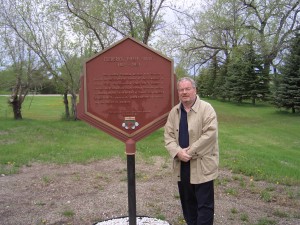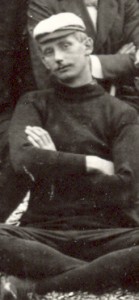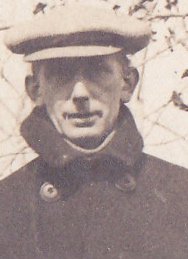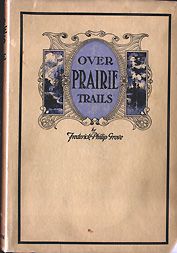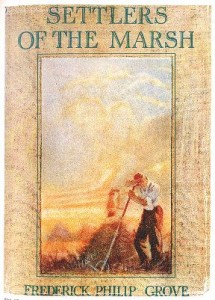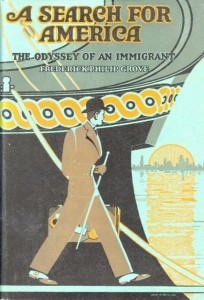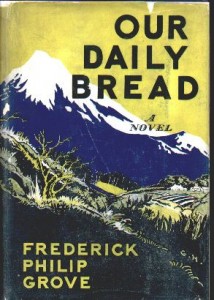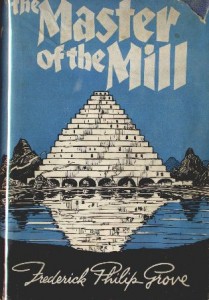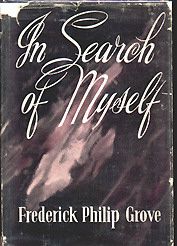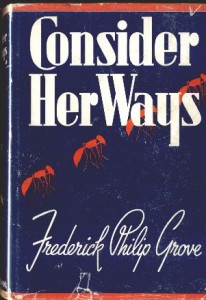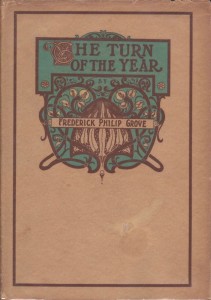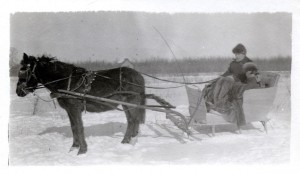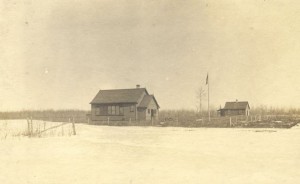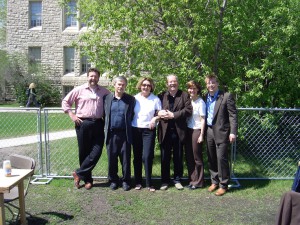Klaus Martens’ Forschung als Literaturwissenschaftler geht in drei Richtungen: LYRIK, FRAGEN der LITERATURVERMITTLUNG und LITERARISCHEN ÜBERSETZUNG sowie CASCADIA (Ethnologie, Literatur und Kulturen des nordamerikanischen pazifischen Nordwestens).
Der Schwerpunkt seiner Arbeit liegt seit ca. 1986 auf der Erforschung von Leben, Vorleben und Werk des deutsch-kanadischen Autors FREDERICK PHILIP GROVE (1879-1948).
Foto: Copyright by Klaus Martens
Das Foto zeigt Klaus Martens an dem Hinweisschild auf Frederick Philip Grove in Rapid City, Manitoba (Kanada), einem Wohnort der Groves (1922-1929), wo sie zeitweise als Lehrer arbeiteten.
Felix Paul Greve in Bonn 1898 Frederick Philip Grove in Ashfield, Manitoba 1920
Fotos: Copyright by Klaus Martens
***
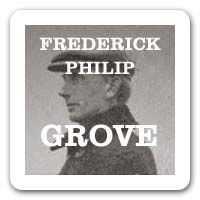
Frederick Philip Grove (FPG) established his lasting fame as the Canadian novelist, poet, and intellectual, and by several accounts, the founder of a post-colonial, modern Canadian literature. Between 1922 and 1947 Grove published about 15 books: novels, autobiographies and collections of essays, short-stories and a translation. Beside his novels about the Canadian prairie and its inhabitants, his biggest successes were his semi-autobiographical writings Over Prairie Trails (1922) and A Search for America (1927). Notable among his works of fiction are his novels Settlers of the Marsh (1925), Our Daily Bread (1928 ) and Fruits of the Earth (1933).
Photos: Copyright by Klaus Martens
For his late autobiographical work In Search of Myself (1946), Grove received the prestigious „Governor General´s Award“ in the category „non-fiction“. Today, knowing what we know about Grove’s life, the category „non-fiction“ represents an ironical twist in his career. While in his 1946 book and in various other, often wildly conflicting autobiographical statements, Grove claimed a wealthy Swede as his father and a cosmopolitan Scotswoman as his mother, in reality he was born into a petit-bourgeois German family in West Prussia, growing up in Hamburg, attending Bonn University, and eventually becoming the prolific translator of over 60 works in little more than seven years.
First knowledge about his identity as the former German citizen Felix Paul Greve became known to a wider public only in 1973, twenty-five years after his death, thanks to the initial detective work of Douglas O. Spettigue. Klaus Martens’s biographies Felix Paul Greves Karriere (1997) and F. P. Grove in Europe and Canada: Translated Lives (2000), based on much new documentary, epistolary, and photographic material discovered and evaluated by him, re-examine and extend previous knowledge of Grove’s German and Canadian years as an important literary figure in both countries.
Grove and his daughter May in the horse-drawn family cutter at Ashfield, 1920
In addition, Klaus Martens’ 2006 edition of selected poems by Grove, A Dirge for My Daughter – and particularly his massive 2007 volume Over Canadian Trails, comprise a multitude of newly published letters – including the Grove-Phelps-Grove correspondence, unpublished letters to Carleton Stanley, etc. – and a wealth of documentary and photographic material about the making of Canadian literature in the 1920s to 1940s plus many previously unpublished photos from the Groves’ private archive. Over Canadian Trails is an invaluable handbook for the Grove scholar and for everybody interested in one of the most exciting periods in Canadian literature and culture.
Ashfield School & Teacherage where the Groves lived, 1920-1
With participants after the Grove lectures in the context of the 2004 Canadian „Learneds“ at the University of Manitoba.
***
Research materials, books, notes, documents, photos, etc. as well as Leonard, Mary and Kathryn Grove’s generous gift of many of Groves‘ remaining papers and objects to Martens, the scholar deposited 2009 in the Literaturarchiv Saar-Lor-Lux-Elsass in the Saarländische Universitäts- und Landesbibliothek, Universität des Saarlandes (SULB), Campus Saarbrücken. Saarland University eventually acquired most of these holdings in 2014.
A smaller collection of various additional books, images and other material by or pertaining to the author and his work as a publisher is extant and in Martens‘ possession. It includes papers regarding Martens‘ further research into the lives and works of FPG, plus related correspondence. Martens‘ private collection may be consulted by special permission.
Photos: Copyright by Klaus Martens

